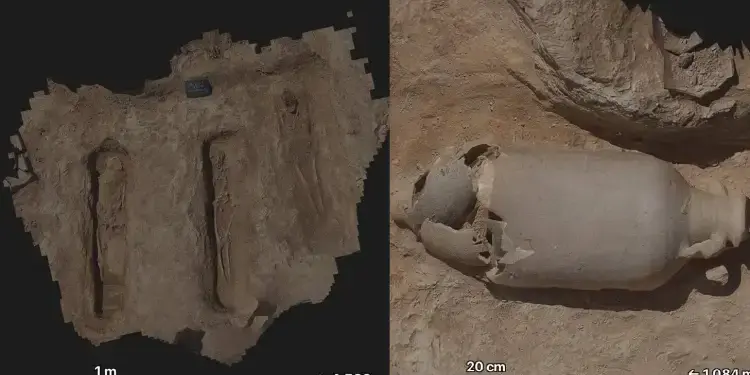The National Heritage Institute (INP) announced this Saturday, May 3, on its official Facebook page, the fortuitous discovery of ancient burials in Sbiba (Kasserine governorate) on the future regional hospital on Saturday.
It was at the very beginning of construction work that funeral vestiges were uncovered. A specialized team from the INP, under the general inventory and research division, intervened to carry out a rescue excavation.
Archaeologists have thus discovered a large number of tombs, meticulously documented on the topographic, archaeological and photogrammetric levels. The bone and material vestiges have been transferred to the regional INP deposits for subsequent studies.
Two types of burials have been identified. The first consists of funeral jars used for the burial of children, a common practice in antiquity. The second group is made up of pits with skeletons protected by curved ceramic fragments.
The first elements suggest that these tombs date back to the end of Antiquity, a period at which the ancient city of Sufes (current Sbiba) still experienced a structured occupation.
This site enriches knowledge on the urban extension of Sufes and is added to other vestiges of the region: very Byzantine, Roman thermal baths, public fountain, Latin and Punic inscriptions.
The mission was coordinated by Hamden Ben Romdhane, with the participation of researchers from the INP in Kasserine, an anthropologist from the Carthage Museum and a student from the University of Manouba.








